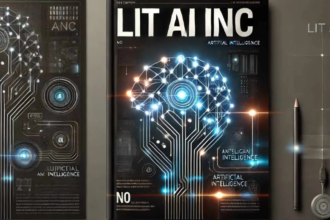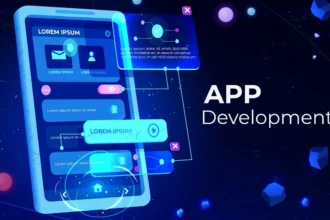In today’s world dominated by technology, artificial intelligence has made a great impact in many fields, one of them being education. There is one area which is currently witnessing the growth of AI, and that is academic writing. Nowadays it is possible to find numerous tools including the AI writing assistants that are used by the students and other professionals. At the same time, it should be realized that, like any other tool, there are benefits and drawbacks for the use of artificial intelligence in academic writing. The aim of this particular article is to evaluate the course that has been set by AI concerning the academic writing process and consider the positives and negatives of this approach.
The Emergence of Artificial Intelligence in the Writing of Research Papers
AI has the advantage of increasing efficiency over the different phases of writing thus has been widely implemented in academic writing. Ideas from the conception to the proofing stages are here; these writing aids claim to make writing easier and quicker. Some writing tools have been existing for a long time and what is available in the market today includes grammar checkers for written work, developing full essays, carrying out research on various topics and enhancing the writing work to be more comprehensible.
Nevertheless, since the application of AI has gained popularity lately, it is still critical to think about all the advantages and possible inconveniences caused by such tools.
Advantages of using AI on the Process of Academic Writing
- Time Efficiency
Another advantage of employing the services of an AI tool in academic writing has to do with time efficiency. Most writing approaches, including brainstorming, researching, drafting and editing, are repetitive and consume a lot of time, and effort. This is made easier through the use of the AI tools which provide support in each of the steps involved in the writing process. For example, autonomous solutions can identify topics, collect relevant information, and, sometimes, suggest an outline of an article. Such features help to save time and effort while writing tasks thus enabling the writers to finish the assignments faster.
- Enhanced Grammar and Style
There are many AI applications in the market which are specifically designed to enhance writing skills for instance the Grammarly application and the Hemingway app are based on artificial intelligence to improve grammar, punctuation and even writing style. These are applications which take text as input and try to identify the mistakes made and offer correct options along with rendering the text more concise and easier to read.
- Overcoming Writer’s Block
Writer’s block is a common issue for students, especially when faced with tight deadlines or complex topics. AI writing tools can help overcome this obstacle by generating prompts or even writing entire paragraphs based on given instructions. This provides students with a starting point, which can ease anxiety and encourage them to continue writing. Additionally, AI tools can suggest synonyms, alternative phrasing, and structural improvements to boost creativity. - Plagiarism Detection
Another advantage of using AI in academic writing is the ability to detect plagiarism. Many AI tools come with integrated plagiarism checkers that scan documents for potential instances of copied content. This ensures that students submit original work and avoid academic misconduct. The accuracy and speed of AI-powered plagiarism detectors can save time compared to traditional manual methods.
Cons of AI in Academic Writing
- Lack of Critical Thinking
In this sense, although the AI tools facilitate different tasks entailing writing, it may foster the deviation of critical thinking. In writing, one has to think it over quite a number of times together with assessing the work or content prior to drawing out the conclusions. Dependence especially on the AI tools for the generation of ideas, arguments and timeframes for completing a paper may deprive the students of the necessary engagement capable of enhancing their intellects.
Very often students think that more usage of AI tools means better outcomes, which is not true since processes like researching and contemplation can not be fully substituted by any AI tool. This reliance may lead to a risky approach to the assignments outcomes, and therefore may negatively influence the quality of learning in the long run.
- Limited Understanding of Complex Topics
Unsupervised AI tools function with particular instructions and in relation with certain datasets. Often they can be good with facts and data but can have problems with interpreting more complicated discursive content such as that found in academia. For example, an application may not understand the nuances of literature, or complex concepts as seen in philosophical discussions. In such a case the output may not be as rich or meaningful as the output of a human writer. Therefore, cone normally AI tools imply that they may generate text that may be substandard as per the quality set down for the academic papers that are in the advanced fields of study.
- Risk of Plagiarism
However, when using the AI tools, there is a possibility of committing plagiarism even if the AI system has the tool of tracking plagiarism. Thus, it is understandable that having too many academic papers written by AI may cause students to submit papers that are similar or even copywritten materials produced by the AI. It could result in the student facing being penalized academically for plagiarism even if it was not his/her intention to be cheating.
To prevent this, the students shall ensure that they review and edit such content very carefully and incorporate their voice into it. - Overreliance on Technology
The other issue with AI use in writing especially in academic writing is the risk of reliance on technology. Although usage of the given tools is highly beneficial, a student who relies on the tools will not be able to write the content without it. It might hinder their writing skills’ growth as well as their capacity to produce quality work if left on their own.
In addition, the outcome generated by these AI tools is not accurate all the time. They can produce a wrong grammar, improper style, or a bad content creation. Through this concept, students can be compelled to accept AI outputs without analyzing them, and this makes them submit low quality work.
The Pros and Cons of AI in Academic Writing: An Honest Review also offers more information on the shortcomings and benefits of AI instruments in academic writing to give a readers’ view on this phenomenon.
Ethical Considerations
Here, it is crucial to mention that the application of AI in the composition of academic works brings some ethical considerations. Opponents of AI in education suggest that it is unfair when students use AI tools to generate or complete the essays as it is cheating. Some people, on the other hand, constitute artificial intelligence as a positive assist that can improve learning and composing abilities.
Students must be cautious on how they utilize AI and this must in some way warrant that the student must always be in charge of what is written. There are many academic activities which need critical thinking and efforts, hence AI should be viewed as a supportive facilitating agent and not a replacement for such skills.
Conclusion
There is no doubt that its integration has drastically changed the way academic papers are written as it allowed for time control, proper grammar, and helped with the writer’s block. But the technology comes with its own set of vices. Students have to pay much attention to these issues because learning may result in the following risks: absence of critical thinking, excessive use of technology in the course of studying, and ethical problems.
Finally, what can be claimed for using AI in academic writing is that it largely depends on the right proportion to achieve, depending on the assessed benefits and drawbacks. If fully managed and combined with the conventional writing tools, the intelligent software can be effective assets in the process of learning.
Ai essay samples here:

















